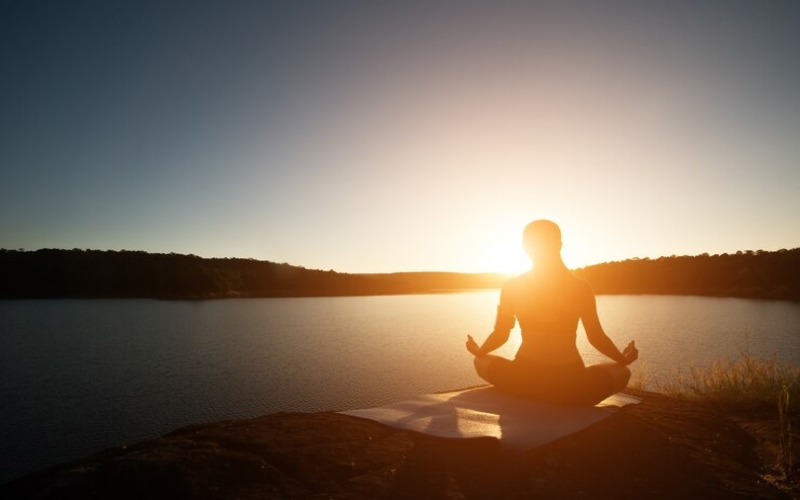Making intentional time for stillness has changed my life.
There isn’t a secret way to transcend the human experience or escape pain, as that is part of life. Stillness is a practice many consider a gift. It can be a way to dispel melodrama in daily life by coming back to the present moment and what matters.
It’s rare these days to fully appreciate the world around us outside of our phones and the work demands of hustle culture. I get it. I live in the real world with you and have been discerning how I’d want to present these ideas, as it is ever so important to me that this can feel relatable and accessible.
Stillness can look like pausing that extra two seconds to explore the flavor and aroma of a warm beverage. It can be as simple as taking slow, intentional breaths during stressful meetings.
Stillness can be carving out a thirty-minute window for nature. It can be as radical as turning a phone off while receiving a massage or other activity to immerse yourself more fully into the present moment.
The practice of stillness involves observing, first, how stimulating the world is at times and acknowledging its effects on our lives. The impacts of overstimulation and overexertion, for me, had in the past looked like fatigue, irritability, loss of motivation, resentment, lack of clarity, decreased attention span, and ultimately, burnout.
When pushing ourselves to the max is our standard, what are we compromising in our well-being? Are we living in a way that invites space for joy, play, laughter, contemplation, and moments of ease?
I invite you to pause for a moment and explore a time in your life when you felt immersed in the experience of some of the qualities listed above. What were you doing at that moment? Can you envision how it felt for you?
If this whole concept feels rough to consider, your feelings are valid. A lot of resistance, guilt, judgment, and other emotions could have come up in the past for you around ways you’ve been taught that your daily life experiences are not as important as your productivity. One way of coming out of this previous belief is remembering that pausing could increase productivity. And then go one step further — is productivity requiring us to rule out brief pauses and breaks? Or are we helping ourselves and giving our brains much-needed changes in stimulation in ways that add value to our productivity?
Ready, Set, Be Still.
The Calm App
Calm is one of the top mental wellness apps crafted to help users manage stress, improve sleep quality, and create a healthier lifestyle. Based on extensive research, the app can help users keep habits that support their mental well-being. The extensive collection of 250+ Sleep Stories, guided sleep meditations, and calming soundscapes can be a game changer for those who struggle with sleep. Plus, the 60-second Breathe Bubble swiftly grounds users in the present, bringing their bodies to a state of relaxation.











